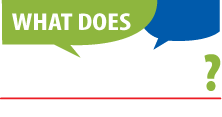Phrases starting with the letter: A B C D E F G H I J K L M N O P Q R S T U V W X Y Z
Definition of: bind
(bīnd) v. bound, bound (Archaic bound·en), bind·ing v.t.
1. To tie together; make fast by tying.
2. To encircle, as with a belt.
3. To bandage; swathe: often with up.
4. To cause to cohere; cement.
5. To strengthen or ornament at the edge, as a garment.
6. To fasten together and secure within a cover, as a book.
7. To make irrevocable; seal, as a bargain.
8. To constrain or oblige to do or not to do, as by moral or legal authority: often with over.
9. To make constipated or costive.
10. To apprentice: often with out.
—v.i.
11. To tie up anything: to reap and bind.
12. To cohere; stick together.
13. To have binding force; be obligatory.
14. To become stiff or hard, as cement; jam, as gears.
— to bind over Law To hold under bond for appearance at a future time.
—noun
1. That which fastens, ties, or binds.
2. Music A curved line, tie, or brace. [OE bindan] Synonyms (verb): compel, engage, fasten, fetter, fix, oblige, restrain, restrict, secure, shackle, tie. Binding is primarily by something flexible, as a cord or bandage drawn closely around an object or a group of objects, as when we bind up a wounded limb. We bind a sheaf of wheat with a cord; we tie the cord in a knot; we fasten by any means that will make things hold together, as a board by nails or a door by a lock. Bind has an extensive figurative use. One is bound by conscience or honor; he is obliged by some imperious necessity; engaged by his own promise; compelled by physical force or its moral equivalent. Antonyms: free, loose, unbind, unfasten, unloose, untie.

Comment about this word, ask questions, or add new information about this topic: